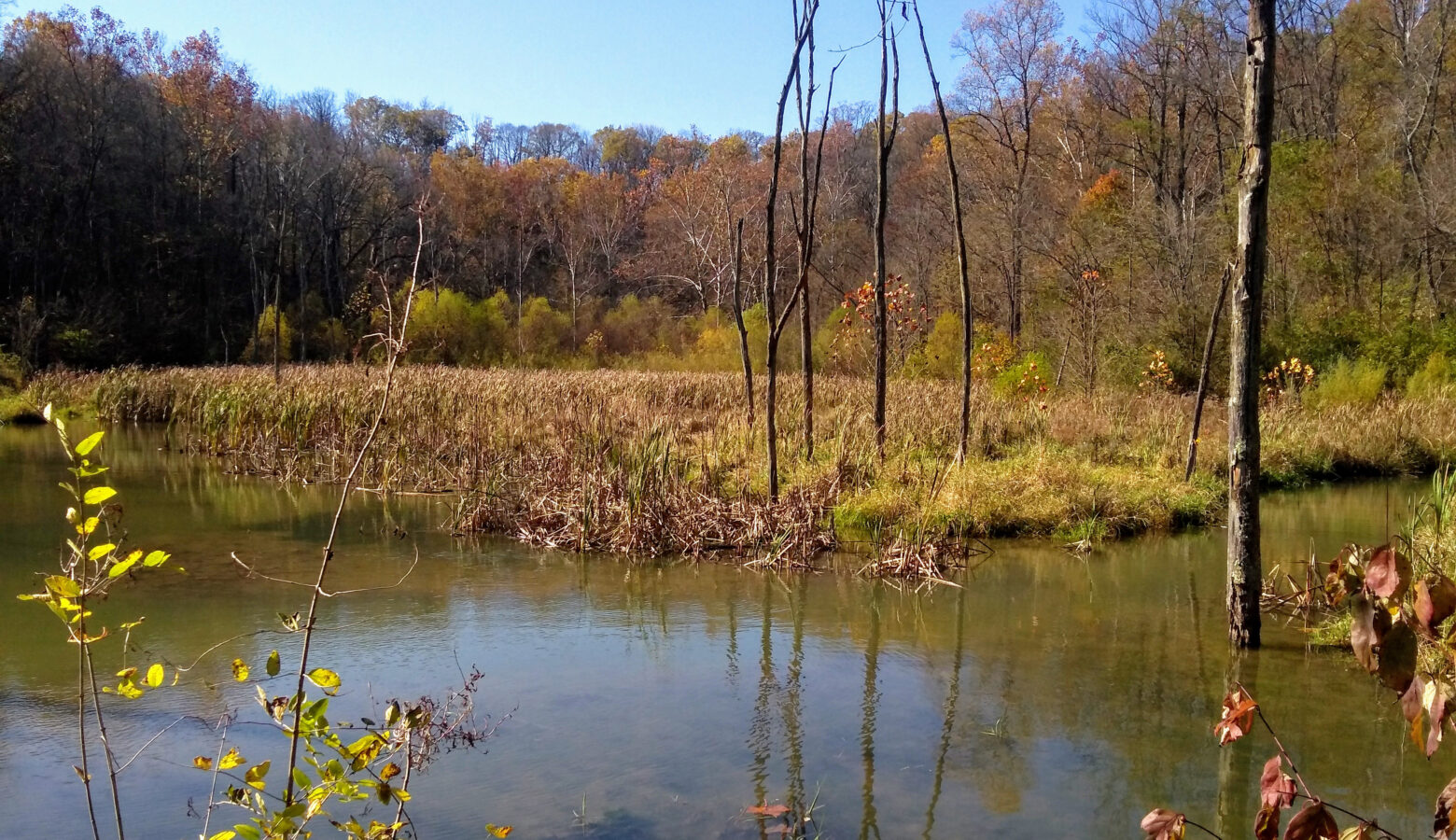One state wetland bill would reduce protections, another gives tax breaks for preservation

Two bills regarding Indiana’s wetlands are working their way through the state legislature. Because of a state law passed three years ago and the result of a recent U.S. Supreme Court case, few wetlands in Indiana are protected today.
One of those bills, HB 1383, authored by Rep. Alan Morrison (R-Brazil), would reduce protections even further. It would lower the number of wetlands that could fall into Class 3 — Indiana’s most protected group of wetlands, and the only class that didn’t lose significant protections when the state changed its wetlands law in 2021.
Rachele Baker said, as a wetland consultant, she stands to make more money if this becomes law — and she still opposes it.
“It reduces or eliminates protections for a lot of wetlands that — really the main reason is they’re just not pretty. So if they just don’t have the right plants or don’t have plants at all, we seem to think that they don’t have any value,” she said.
Without wetlands, Baker said cities will be responsible for more flood control — and that means higher infrastructure costs. Wetlands also provide habitat for wildlife, filter water, and store carbon emissions.
READ MORE: How do I follow Indiana’s legislative session? Here’s your guide to demystify the process
Join the conversation and sign up for the Indiana Two-Way. Text “Indiana” to 765-275-1120. Your comments and questions in response to our weekly text help us find the answers you need on statewide issues, including our project Civically, Indiana and our 2024 legislative bill tracker.
Groups representing builders and contractors say the bill is a good compromise because it contains an incentive that saves developers that preserve wetlands money — something they say was recommended by a state wetlands task force.
But another bill in the Senate, SB 246, would provide tax breaks to developers and homeowners without cutting protections. Sen. Sue Glick (R-LaGrange)’s bill allows the Indiana Department of Natural Resources to certify some acres of ground as “wildland” — which qualifies for tax breaks.
“We want people to be encouraged to preserve these mature wetlands. A mature wetland even of a small size will do more good cleaning the water, keeping it clean, making things better for all of us,” she said.
Glick said developers have told her the bill would not only give them an incentive not to destroy those wetlands, but it would encourage homeowners to maintain them over time.
Indiana wetland advocates overwhelmingly support this bill and oppose the one in the House. The Indiana Builders Association supports both.
Both bills passed committee. The House bill now moves to the full House for consideration, while the Senate bill will have to go through the Appropriations Committee first.
Rebecca is our energy and environment reporter. Contact her at rthiele@iu.edu or follow her on Twitter at @beckythiele.


